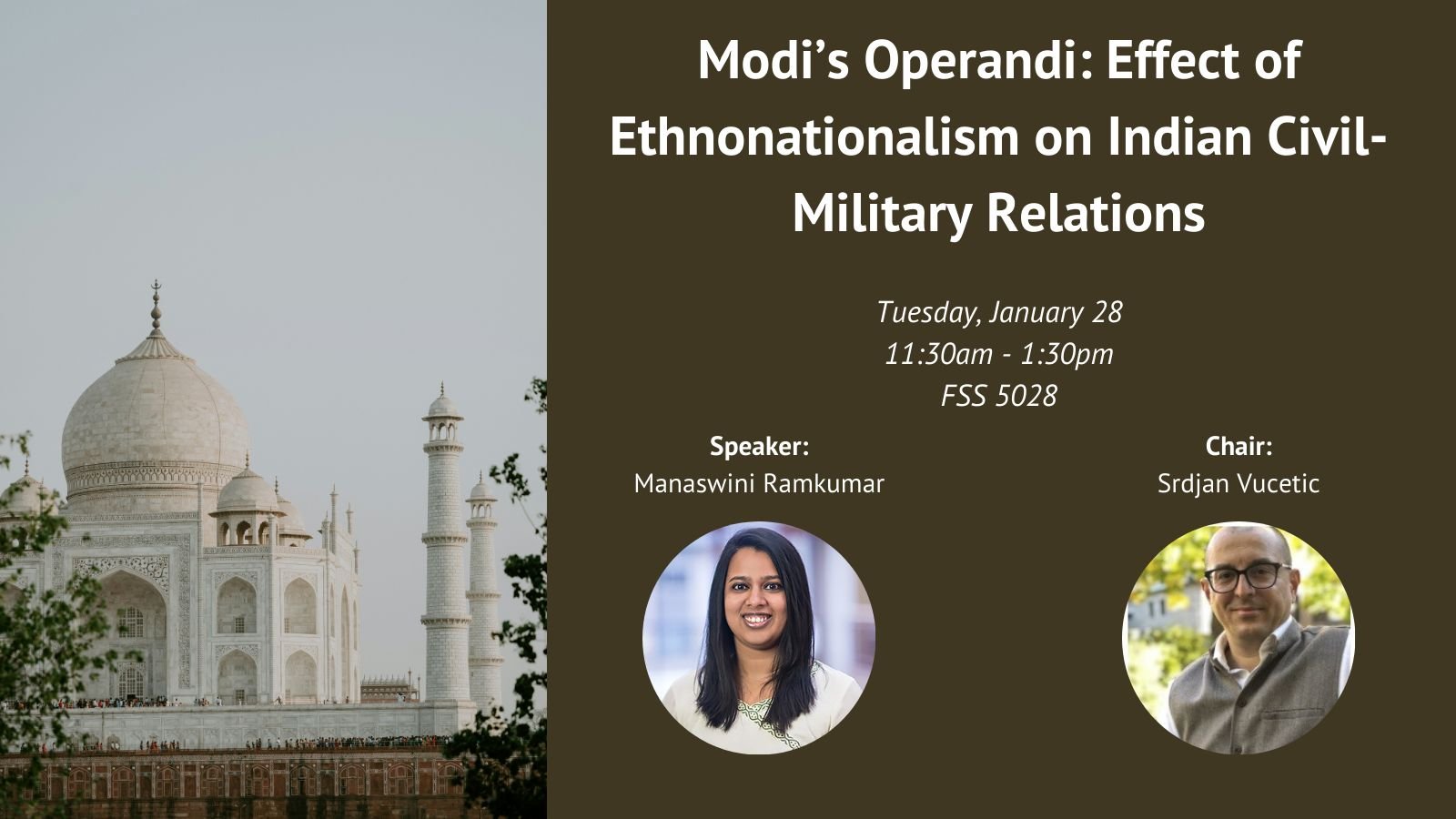Presented by CIPS and the International Theory Network (ITN)
How does ethnonationalism affect the military? The principal dilemma of civil-military relations is balancing between a military strong enough to protect the state and obedient enough to use its strength only when asked by civilian leaders. Democratic civilian control measures provide the military with operational autonomy in return for their political neutrality. However, this bargain gets upended by ethnonationalism. Ethnonationalistic leaders draw the military into politics and use them in ways counter to democracy, straining the military’s cultivated norm of apoliticality and allegiance to a democratic constitution.
In this presentation, Dr. Ramkumar traces how Hindu nationalism has securitized Indian politics by deepening preexisting social cleavages and conflating external and internal security threats. She investigates the interactions between India’s nationalistic leader Prime Minister Narendra Modi and the Indian military. Through interviews with current and retired military officers, she find that the government’s securitized rhetoric expands the notion of ‘enemies to the state.’ Where the military’s focus used to be conventional operations against neighboring military forces, the government now routinely deploys the army to undertake legally sanctioned ‘aid to civil authority’ missions that blur the line between external and internal threats. Enemies now are those deemed by the government to be ‘anti-national,’ namely minorities, low-caste citizens, and anti-government critics. In so complying, the military has hastened India’s democratic erosion.
Speaker:
Manaswini Ramkumar is the CDSN Postdoctoral Fellow 2024-2025 at the Norman Paterson School of International Affairs, Carleton University. She received her PhD in International Relations at the School of International Service, American University in Washington DC. Her research focus is civil-military relations in the context of democratic erosion. She also studies postcolonial statebuilding, subnational democracy, and authoritarian resistance. Her work has been funded by American University, The Association for Documentary Editing and the American Political Science Association. She received her MPhil in IR from American University and MSc in Strategic Studies from the S. Rajaratnam School of International Studies at Nanyang Technological University in Singapore where she previously worked as an Associate Research Fellow in the Military Studies program and was a lecturer in Professional Military Education to the Singapore Armed Forces.
Chair:
Srdjan Vucetic is a Professor at the Graduate School of Public and International Affairs. His research interests involve American and Canadian foreign and defence policy and international security. Prior to joining the GSPIA, Srdjan was the Randall Dillard Research Fellow in International Studies at Pembroke College, University of Cambridge.

